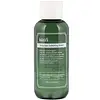What's inside
What's inside
 Key Ingredients
Key Ingredients

No key ingredients
 Benefits
Benefits

 Concerns
Concerns

No concerns
 Ingredients Side-by-side
Ingredients Side-by-side

Camellia Sinensis Leaf Water
MaskingButylene Glycol
HumectantGlycerin
Humectant1,2-Hexanediol
Skin ConditioningLuffa Cylindrica Fruit/Leaf/Stem Extract
Skin ConditioningOryza Sativa Extract
AbsorbentHibiscus Esculentus Fruit Extract
Skin ConditioningWater
Skin ConditioningBetaine
HumectantTrehalose
HumectantHydroxyethylcellulose
Emulsion StabilisingArtemisia Princeps Extract
Skin ConditioningPanthenol
Skin ConditioningSorbitol
HumectantSorbitan Sesquioleate
EmulsifyingEthylhexylglycerin
Skin ConditioningLaminaria Japonica Extract
Skin ProtectingDisodium EDTA
Sodium Hyaluronate
HumectantDisodium Phosphate
BufferingPolysorbate 60
EmulsifyingHydrogenated Lecithin
EmulsifyingSodium Phosphate
BufferingCeramide NP
Skin ConditioningCamellia Sinensis Leaf Water, Butylene Glycol, Glycerin, 1,2-Hexanediol, Luffa Cylindrica Fruit/Leaf/Stem Extract, Oryza Sativa Extract, Hibiscus Esculentus Fruit Extract, Water, Betaine, Trehalose, Hydroxyethylcellulose, Artemisia Princeps Extract, Panthenol, Sorbitol, Sorbitan Sesquioleate, Ethylhexylglycerin, Laminaria Japonica Extract, Disodium EDTA, Sodium Hyaluronate, Disodium Phosphate, Polysorbate 60, Hydrogenated Lecithin, Sodium Phosphate, Ceramide NP
 Reviews
Reviews

Ingredients Explained
These ingredients are found in both products.
Ingredients higher up in an ingredient list are typically present in a larger amount.
1,2-Hexanediol is a synthetic liquid and another multi-functional powerhouse.
It is a:
- Humectant, drawing moisture into the skin
- Emollient, helping to soften skin
- Solvent, dispersing and stabilizing formulas
- Preservative booster, enhancing the antimicrobial activity of other preservatives
Betaine is a common humectant (a substance that promotes retention of moisture). It's known to be gentle on the skin and can help balance hydration.
This ingredient is best for improving hydration and soothing irritated skin. Studies also show it helps even out skin tone.
Fun fact: Betaine is naturally created in the skin and body. The kind found within cosmetic products can be either plant-derived or synthetic.
Another name for betaine is trimethylglycine.
Learn more about BetaineDisodium EDTA plays a role in making products more stable by aiding other preservatives.
It is a chelating agent, meaning it neutralizes metal ions that may be found in a product.
Disodium EDTA is a salt of edetic acid and is found to be safe in cosmetic ingredients.
Learn more about Disodium EDTAGlycerin is already naturally found in your skin. It helps moisturize and protect your skin.
A study from 2016 found glycerin to be more effective as a humectant than AHAs and hyaluronic acid.
As a humectant, it helps the skin stay hydrated by pulling moisture to your skin. The low molecular weight of glycerin allows it to pull moisture into the deeper layers of your skin.
Hydrated skin improves your skin barrier; Your skin barrier helps protect against irritants and bacteria.
Glycerin has also been found to have antimicrobial and antiviral properties. Due to these properties, glycerin is often used in wound and burn treatments.
In cosmetics, glycerin is usually derived from plants such as soybean or palm. However, it can also be sourced from animals, such as tallow or animal fat.
This ingredient is organic, colorless, odorless, and non-toxic.
Glycerin is the name for this ingredient in American English. British English uses Glycerol/Glycerine.
Learn more about GlycerinPanthenol is a common ingredient that helps hydrate and soothe the skin. It is found naturally in our skin and hair.
There are two forms of panthenol: D and L.
D-panthenol is also known as dexpanthenol. Most cosmetics use dexpanthenol or a mixture of D and L-panthenol.
Panthenol is famous due to its ability to go deeper into the skin's layers. Using this ingredient has numerous pros (and no cons):
Like hyaluronic acid, panthenol is a humectant. Humectants are able to bind and hold large amounts of water to keep skin hydrated.
This ingredient works well for wound healing. It works by increasing tissue in the wound and helps close open wounds.
Once oxidized, panthenol converts to pantothenic acid. Panthothenic acid is found in all living cells.
This ingredient is also referred to as pro-vitamin B5.
Learn more about PanthenolWater. It's the most common cosmetic ingredient of all. You'll usually see it at the top of ingredient lists, meaning that it makes up the largest part of the product.
So why is it so popular? Water most often acts as a solvent - this means that it helps dissolve other ingredients into the formulation.
You'll also recognize water as that liquid we all need to stay alive. If you see this, drink a glass of water. Stay hydrated!
Learn more about Water